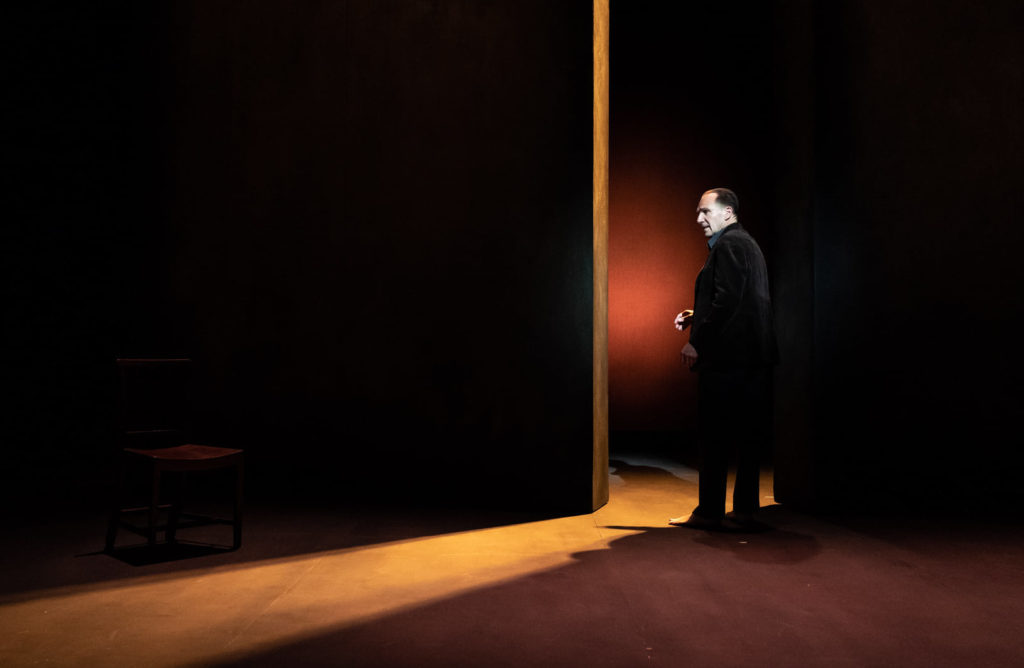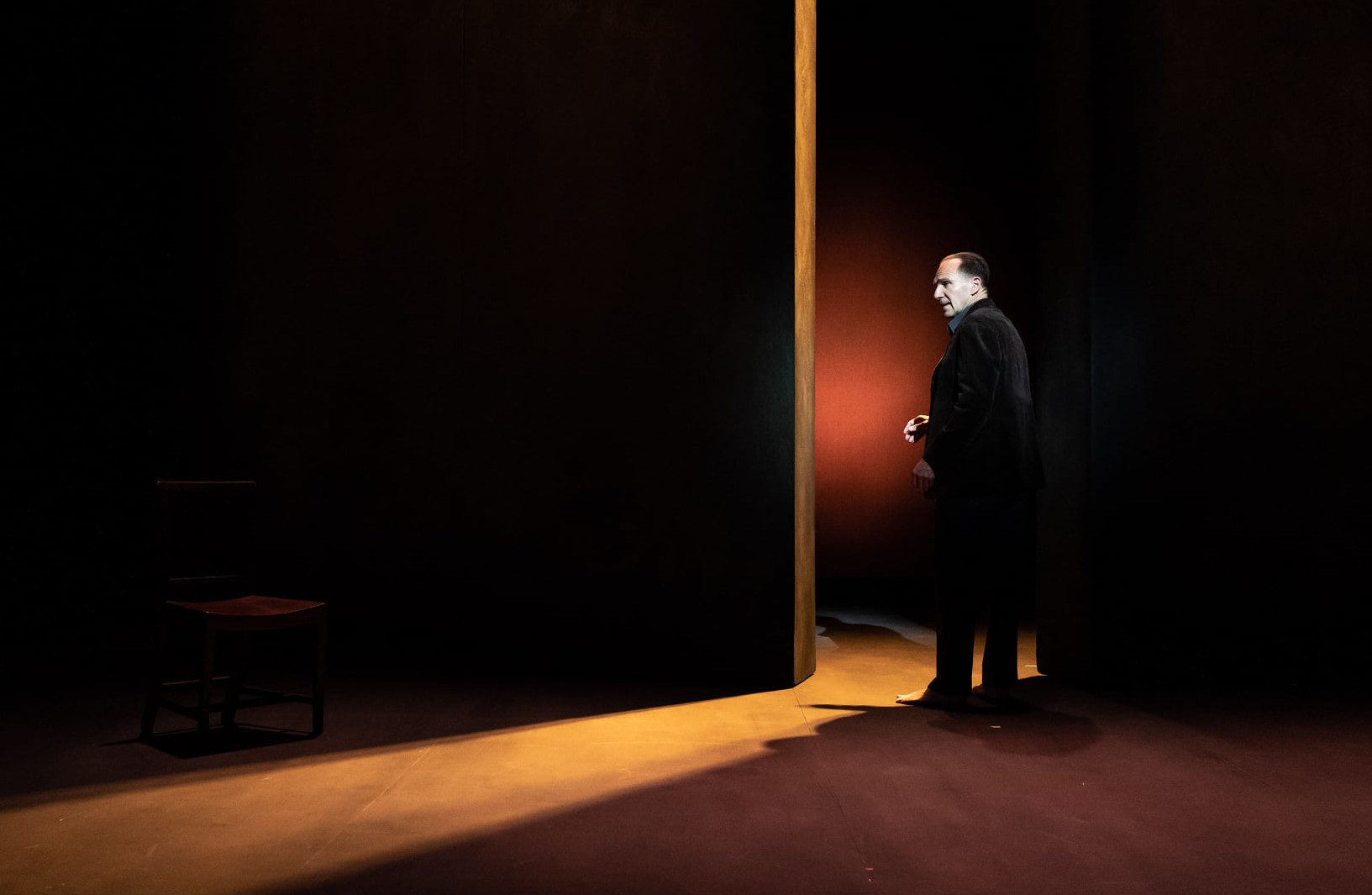
I had imagined that a poetry recital, albeit one directed and delivered by Ralph Fiennes, would prove to be a relatively low-key return to live theatre. I could not have been more wrong, for there is much in his Four Quartets that is simply astonishing.
There is a long-established tradition of distinguished actors giving recitals of these elusive, multi-faceted works. Generally, the approach has been meditative and entirely sombre in tone, with little overt evidence of ‘performance’. A few have been too self-effacing, resulting in something rather dry and academic. The best recitals have succeeded in finding the music in the rhythm of the language, and have revealed the depth of emotion that lies within.
But Fiennes goes further, digging deep to find drama in these poems, and the result is a marvellous piece of theatre. He focuses especially on the often unresolved, tortured nature of the language, giving physical expression to Eliot’s ‘intolerable wrestle with words and meanings’. Dressed casually, and barefoot, he takes risks, adopting an approach that is often far from solemnly reverential. On occasion he sings, or he stamps out a rhythm; he even dances. He brings out the humour in Eliot’s self-deprecatory moments, as in East Coker when, after a passage full of rather high-flown, cosmic imagery, he confesses that he has been indulging in a style that is no longer fit for purpose. Fiennes delivers the line ‘It was not (to start again) what one had expected’ in an entirely conversational manner, and the sudden descent from grandiosity is comic. These brief, lighter moments act as a release from the urgent intensity that pervades most of the poetry, that sense of ‘a lifetime burning in every moment’.
Set designer Hildegard Bechtler has created two imposing monoliths, the narrow gap between them serving very effectively to represent a doorway into light or darkness, meaning or mystery. Under Tim Lutkin’s lighting, the colours of their blank surfaces shift with the changing moods of the poems. Before them the stage is bare, save for two simple wooden chairs and a small table. That this setting does not represent a specific place or time seems entirely appropriate. It is only in Christopher Shutt’s sound design that occasionally there is a reference to a particular kind of location or period, with a brief hint of dance music, or the crash of waves at the beginning of The Dry Salvages. These moments work well, but there are one or two other sound effects that I found distracting.
Is there anything in these poems that speaks particularly to our current situation? Perhaps there is. Three of these poems were written during the dark days of 1940-41, and Eliot saw them as patriotic. The notion that an existential crisis can give rise to an increased sense of national identity offers a tenuous connection with the pandemic. A stronger link is found in the theme of ‘time’. During the past year, with no appointments to keep, nowhere to go, and no distinction between weekday and weekend, time has seemed to turn in on itself, to abandon its linearity. Many will find echoes of that experience in lines that speak of ‘Neither movement from, nor towards, Neither ascent nor decline.’
Ralph Fiennes’ performance is a tour de force, not least as a prodigious feat of memory. This recital has obviously been meticulously thought through, yet his delivery of the lines appears utterly spontaneous, creating the illusion that the words and ideas are being freshly minted there and then. Drawing upon a formidable range of physical and vocal skills to bring these challenging poems to dramatic life, he has created an unforgettable 70 minutes of theatre. ★★★★★ Mike Whitton 3rd June 2021


